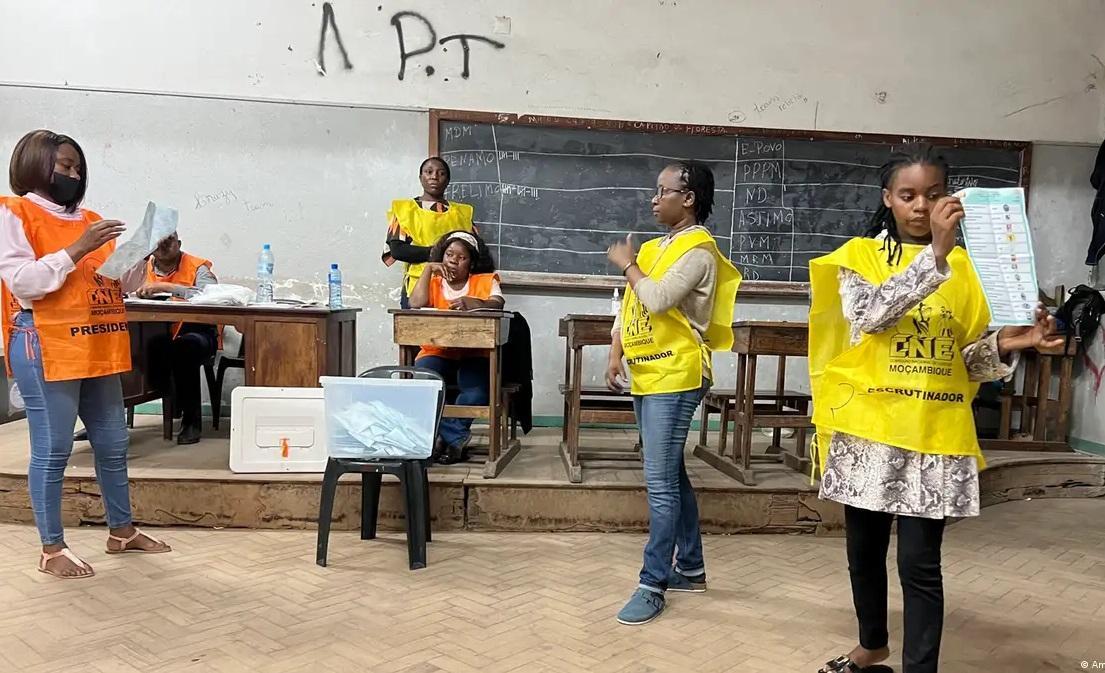
Africa-Press – Mozambique. The CNE Friday said it is not required to check polling station results sheets (editias) and effectively confirmed that it did not do so this year. The National Elections Commission (CNE) simply rubber-stamped results from the district elections commissions (CDEs). But in the previous 2018 municipal elections, in secret it made major changes to CDE results.
In a note of clarification to Savana the CNE said that “For the purposes of the central tabulation of the results of municipal elections, the law is clear in dispensing with the editais and minutes of the polling station (which are kept by the District Elections Commission), while using the intermediate tabulation, made by district, for the purposes of the general tabulation.”
However this interpretation of the law is contested. The law as says “The presiding officer of each polling station shall immediately communicate the information contained in the edital” to the CNE, and the law also requires the CNE to “verify” the numbers.
Furthermore, it is know that the CNE regularly uses numbers from polling station editais, and in the past had the physical editais.
For example, five years ago, in 2018 local elections the CNE changed the District Elections Commission (CDE) count in two municipalities. In Marromeu the CNE added 748 votes for Frelimo which gave Frelimo a victory of 46 votes. In Chimoio it took 120 votes away from Renamo, which made no change in the narrow Frelimo victory. These changes were secret and not announced, and only discovered when this bulletin compared district and national results documents.
And the results of the national elections announced by the CNE are always based on the national STAE tabulation of polling station edital data, and the CNE ignores the provincial tabulations.
A central problem is that the entire CNE tabulation process is secret, and if any records are kept of changes, they are not public. So there is no way of know anything about the tabulation processes for CNE or its technical secretariat (STAE). This level of secrecy must be unique in an electoral democracy.
Indeed the law says “Observers of the electoral process have the right to … observe the subsequent operations of the electoral process at all levels, in particular the collection of data, centralisation and tabulation of election results at district, city, provincial and central level.” But the CNE and STAE have always said that the processing of the data, including changes and exclusion of polling stations, is not part of “all levels” and observers and party agents have never been allowed to see this. This was confirmed by the Constitutional Council on 9 November 2019.
This means that the entire tabulation process is secret, and STAE and the CNE are free to make any changes they wish, without explaining or even without saying what they have done. This has expanded to the Constitutional Council (CC) which had an excellent website https://www.cconstitucional.org.mz/ on which all rulings were immediately posted. But for this election period, for the first time, the CC website has been closed.
The result of such secrecy was shown during the announcement of the results of the 2019 national elections. The results were approved and announced by the CNE. On 27 October 2019 this bulletin pointed out that the CNE results omitted the diaspora (Africa and Europe) vote. Yet the CNE submitted precisely these results and the CC approved them as Acórdão 25 on 22 December 2019. On 23 December 2019 we pointed out that the October CNE results had not been changed and the results as announced by the CC were wrong and did not contain the diaspora.
On about 2 January 2020 the CC replaced Acórdão 25 with a new Acórdão 25, still with the 22 December 2019 date, including the diaspora vote for president, but not for parliament. This bulletin pointed this out on 5 January. The next day, 6 January, in total secrecy, the CC replaced the new Acórdão 25 with a third Acórdão 25, still with the 22 December 2019 date, including the diaspora vote for parliament. The secrecy was total, but we simply checked the website regularly. All three versions of Acórdão 25 are on https://www5.open.ac.uk/technology/mozambique/general-election-2019-newsletters But for this election the CC has taken down its website, which will ensure changes and mistakes are kept secret.
Thus finding out how Mozambique elections work is done entirely by searching for clues. The Constitutional Council sometimes reports information previously kept secret by the CNE. CNE or STAE staff sometimes brief diplomats and tell them titbits which are not public. We do comparisons of all available documents. And insiders talk to us, off the record. Mozambique’s elections are controlled by a handful of people acting in secret, with total freedom to change the results, and with no openness or transparency.
For More News And Analysis About Mozambique Follow Africa-Press





